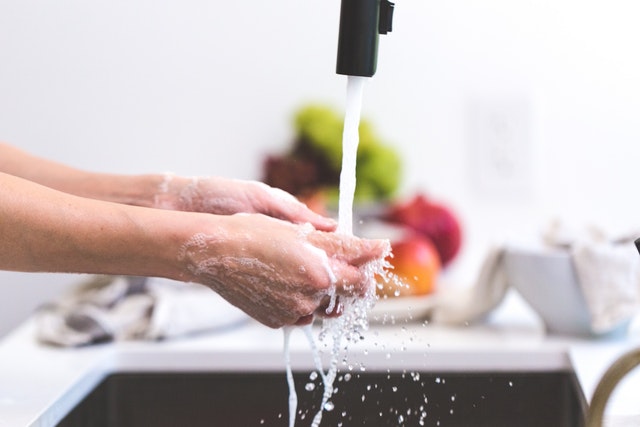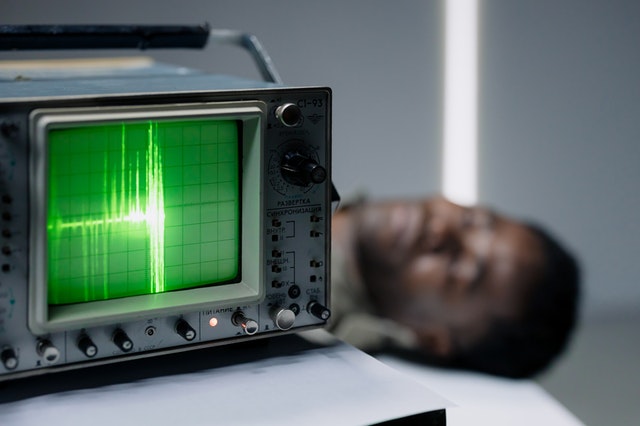On the CNA skills test, you will be required to demonstrate a range of skills and abilities. This may be a difficult section of the test, but we’ve broken it down into a series of blogs that includes this one and more to help you prepare. We’ll talk about personal perineal hygiene in this blog, which covers tasks like handwashing and donning/doffing gowns and gloves.
Handwashing
While your skills exam will choose certain skills randomly, almost every state will test handwashing as a separate skill, as well as hand washing before, during, and after other skills, so mastering it is essential. You’ll probably be asked to wash your hands at the start of the test, and then you’ll be reminded to do so when completing subsequent tasks.

Maybe you care about Helpful Tips for Dealing with Dry Hands
Tips to ensure Hand Washing is performed correctly
Here are the steps to follow, as well as some tips on how to do this skill correctly:
- If you’re wearing a watch, bracelets, rings, or long sleeves, make sure to take them off or fold them up so they don’t get in the way. Ensure that no clothes come into contact with the sink
- Check the temperature before turning on the water. The water should be warm, but not to the point of burning or discomfort. While washing your hands, keep the water flowing
- Apply soap on your hands up to your wrists after they have been wet. If your hands aren’t obviously dirty, work up a lather with friction for at least 20-30 seconds. Wash for at least one minute if visibly dirty or after contact with body fluids. Working the soap around and under your fingernails is important since this is where germs and bacteria grow. As required, reapply soap and re-wet your hands.
- Make sure your hands are lower than your elbows when washing them, so the microorganisms you’re trying to wipe away don’t climb up your arms. You should start over if your hands touch the counter or the inside of the sink while washing.
- Rinse your hands under warm water, keeping your hands below your elbows once again
- Allow your hands to drip; do not shake!
- Using a disposable paper towel, dry your hands. So that the possibly dirty parts above the wrist do not move down to the fingers, dry from the fingertips to the wrist. Remove the paper towel and toss it in the trash
- Turn off the water faucet with a fresh, dry paper towel. Discard that paper towel
Donning and Doffing Gowns and Gloves
Donning and removing PPE in nursing, like gowns and gloves, correctly is critical, especially during a pandemic. Because this is one of the more often requested abilities, here are the steps and advice:
- Please wash your hands (or tell the examiner that you would wash your hands)
- Choose a gown and gloves that fit well and are in good condition
- Fold the gown backward so that the opening is at the back. Tie the gown at the neck and then at the waist, ensuring that there is overlap in the back
- If you’re requested to put on eyeglasses, do it after you’ve put on your gown and before you put on your gloves
- Put on gloves that overlap the cuff of the robe so that no skin is visible
- You may be asked to pretend or mimic entering a patient room and doing an activity
- Before exiting the patient room, take off your gown and gloves
- Remove the gloves first. Remove the first glove with the other gloved hand and the second glove by the inside of the wrist with the other gloved hand. You want to rub dirty against dirty and clean against clean. Place the gloves in the appropriate container
- Remove the gown by turning it inside out after untying or breaking the knot at the neckline. Dispose of the gown
- Remove any eyeglasses or face shields you may be using and deposit them in the proper receptacle
- After removing all PPE, wash your hands (or inform the examiner that you will wash your hands at this step) and leave the patient room.
>>> Read more: Skills in CNA test: 5 Vital Signs and Measurements
Perineal hygiene advice

Read Expert Advice for PPE in nursing by Tanya Glover, CNA PPE is simply gloves for many CNAs. This is a serious issue at nursing homes and other healthcare facilities since more and more personnel are becoming infected with illnesses from their failure to wear personal protective equipment (PPE). Though it may not seem important while you are a student, PPE may be the difference between life and death for both you and your patients in the actual world of nursing. The goal is to treat each patient as though they are infected with a life-threatening disease. This way, you’ll be able to take the necessary steps to safeguard everyone involved. This is what is referred to as universal precautions.
When working with a patient who is isolated, it is extremely important to use proper PPE. This is because you don’t want to spread the germs that brought them there in the first place, and you don’t want to infect someone who already has a compromised immune system. While it is critical to use PPE, it is equally critical not to overdo it. Allow me to share with you my experience. I was assigned to a gentleman who was in the advanced stages of AIDS during my first year as a hospice CNA in a nursing facility. This frightened me beyond belief. I knew that if I followed the necessary precautions, I wouldn’t become infected. My rationale, like those of many others, was trumped by my dread of contracting AIDS. I put on two gowns, two pairs of gloves, and a full face mask because of my dread. Despite the fact that the patient never showed symptoms of being unhappy, I knew he was. Knowing that others are frightened to touch you must be terrifying. I realized it couldn’t go on like this, so I sought counseling and eventually recovered. Keep in mind that all of our patients, including those with life-threatening illnesses, are individuals just like you and me. Make them feel at ease and ensure that their final days are filled with joyful memories.
Handwashing and PPE in nursing are high priority, especially during a pandemic, but also at any time, therefore they should be perineal hygiene skills you practice and apply at all times.
Visit our websites to get more information and free CNA practice exam. To download, visit our website for your IOS or Android device.

Top Registered Nurse Interview Tips
Remember some important registered nurse interview tips in our post is an excellent way to ensure that you are well-prepared for the interview.
January 1, 2022

Everything That You Should Know About The CNA Online Test
Lots of students have wondered about the CNA online test as well as what should be remembered when taking it. Let’s get started!
January 1, 2022

All You Need To Know About Checking The Apical Pulse
What is the apical pulse which is the method to check it? Here we will help you with the following beneficial information. Let’s get started!
January 1, 2022
